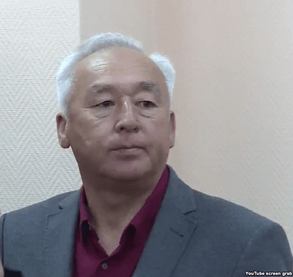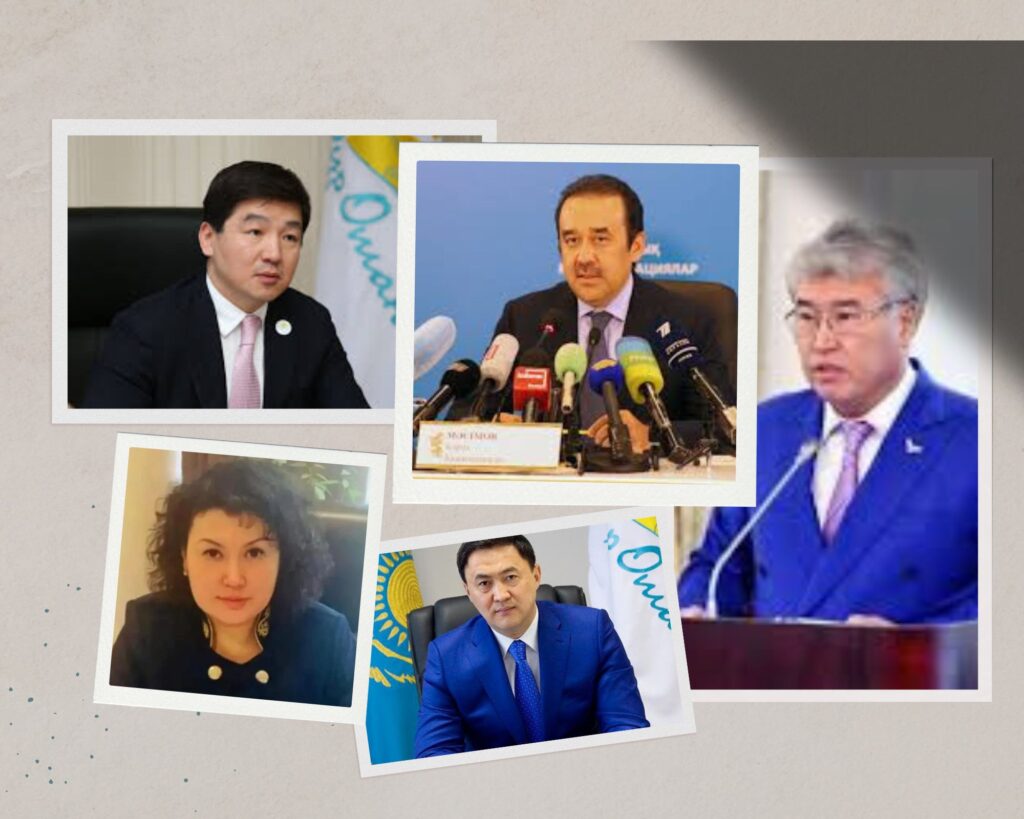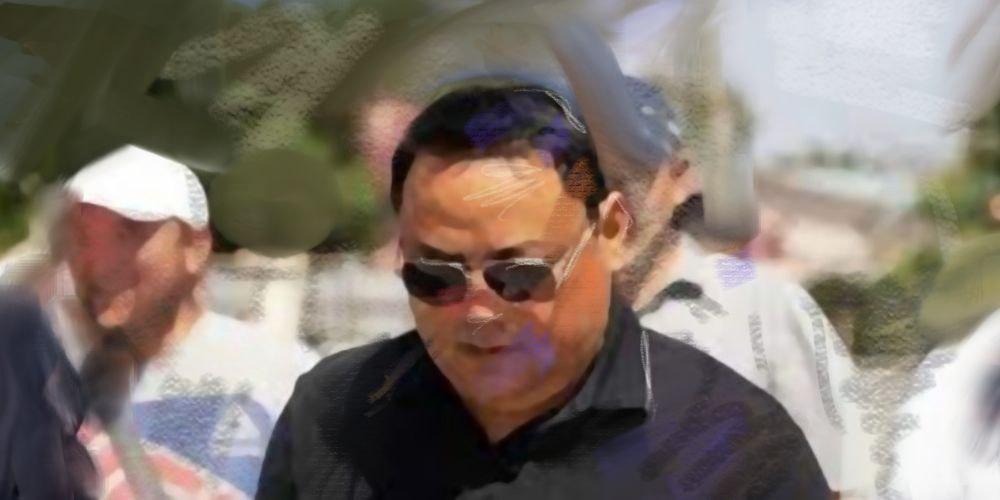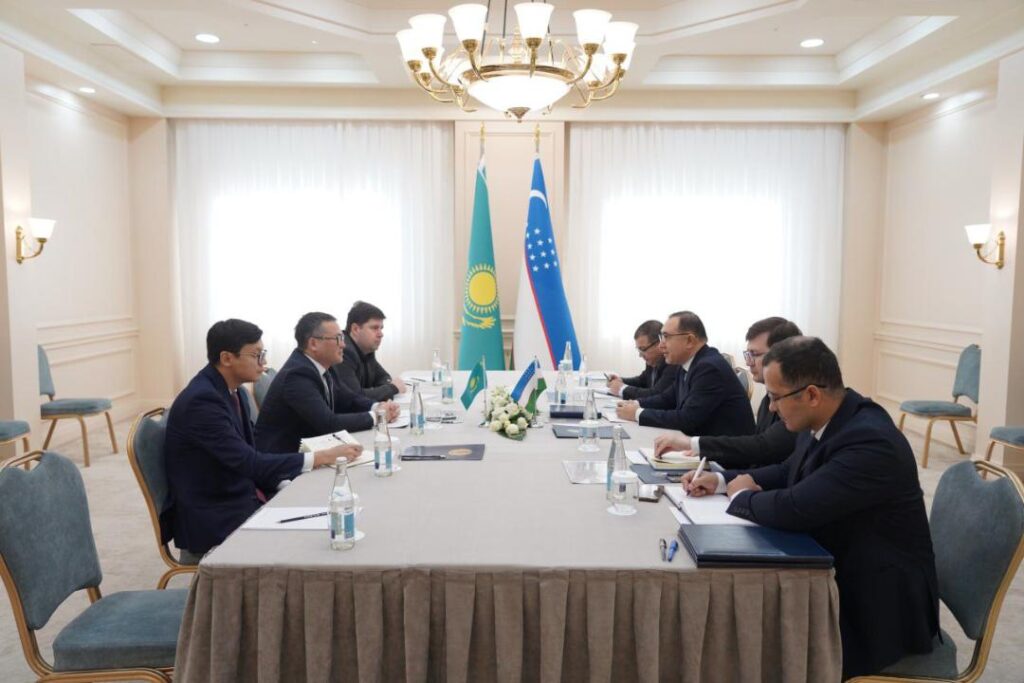ASTANA (TCA) — As a court in Astana on October 3 found Seitkazy Matayev, the head of the Kazakh Journalists Union, guilty of tax evasion and embezzlement and sentenced him to six years in prison, and his son, Aset, the director of the KazTAG news agency, was sentenced to five years on corruption charges, we are republishing this article by Aigerim Toleukhanova, originally published by EurasiaNet.org:
The corruption trial involving one of Kazakhstan’s most prominent journalists ended on October 3 with a guilty verdict and widespread suspicions of political machinations.
A court in Astana ruled that Seitkazy Matayev, the head of the Kazakh Journalists’ Union, along with his son Aset Matayev, defrauded government agencies of around $1 million.
Seitkazy Matayev, who served as President Nursultan Nazarbayev’s first post-independence press secretary in the early 1990s, received a six-year sentence in a penal colony, while his son was sentenced to five years in jail on embezzlement charges.
The ruling may spell the legal and physical end of the National Press Club — an institution run by the Matayevs that had served as a haven for independent reporters and activists.
Matayev and his son were arrested in February on suspicion of tax evasion and misappropriating money granted to their KazTAG news agency as part of a much-criticized state subsidy program. In an impassioned final plea to the court, Seitkazy Matayev on September 27 denied the charges and accused the current chairman of the lower house of parliament, Nurlan Nigmatullin, of orchestrating his downfall. Until late June, Nigmatullin was head of the presidential administration.
Matayev alleged that Nigmatullin told him: “Think about your grandchildren. What is your intransigence going to leave them with?”
Nigmatullin initially avoided commenting on the trial but eventually told journalists that Matayev’s allegations were a dishonest attempt to “politicize the case.” An anti-corruption official also implicated by Matayev in court heatedly denied any conspiracy.
“This is a lie. There has been no political order against Matayev,” Talgat Tatubayev, the head of the anticorruption agency, told reporters. “The investigation was carried out legally. During all investigative activities, both his lawyers [Andrei] Petrov and [Madina] Bakiyeva were present.”
The prosecution’s case focuses on the period from 2010 to 2015, when the government’s information committee reportedly gave KazTAG around half a million dollars as part of a system known as the “state order” — whereby information about public policy is placed in media outlets.
The former head of the information committee, Bolat Bersebayev, told the court that he felt compelled to grant KazTAG a contract, despite the lack of applicants for a competitive tender application, as he feared being made target of a smear campaign.
Bersebayev was one of a handful of officials detained in July in connection with the case, but was later exempted from criminal liability after “actively repenting.” He has since been reclassified as a witness.
The Matayevs do not deny receiving money from the state, but insist they did so legally and paid full taxes on it.
“During five years of its activity, KazTAG paid 106 million tenge ($315,000) in taxes, 328 million tenge in salaries, having received 169 million through the state order,” Aset Matayev said.
Another strand of the state’s case is that KazTAG took 260 million tenge ($772,000) from state telecommunications company Kazakhtelecom and 80 million tenge ($238,000) from the Communication, Informatization and Information Committee to publish articles on their behalf, but that the news agency violated the term of the deal by making the material available only to subscribers.
KazTAG is a subscription service kept behind a firewall, although the bulk of its materials do filter out onto the Internet all the same, as a witness for the defense, Eurasian National University researcher Olga Muravyova, explained in court.
The case has come under attack from rights activists and political analysts suspicious that the Matayevs’ trial is less about crime and more about venal political and financial interests.
Yevgeny Zhovtis, one of the country’s leading human rights activists, told EurasiaNet.org that he believes the entire affair was politically motivated. “The issue here is to do with a union of journalists, a media organization and a certain independent position, all of which Seitkazy tried to maintain. I would say that this trial is political in connection with certain internal [political] processes,” he told EurasiaNet.org.
Political commentator and opposition activist Amirzhan Kosanov has described the now-concluded trial as an assault on independent journalism in Kazakhstan. “This is a demonstration that these people wanted to give to free journalism. To show, with the Matayevs as an example, that they can deal with anybody, even a person of such a high caliber, who was Nazarbayev’s first press secretary and a person who was strongly loyal to the president and that was never in the opposition,” Kosanov told EurasiaNet.org.
The outcome of the trial also raises questions about the fate of the state order — the instrument that the government uses to advance its agenda via mass media.
“I am not willing to be a recipient of the state order in a situation where Seitkazy Matayev is facing conviction,” Vycheslav Abramov, chief editor of Vlast.kz, an independent outlet driven to the verge of closure by money problems, told Forbes.kz. “The state order is a serious form of support helping media in our country, but in its current form, there are decidedly significant risks in receiving it.”









